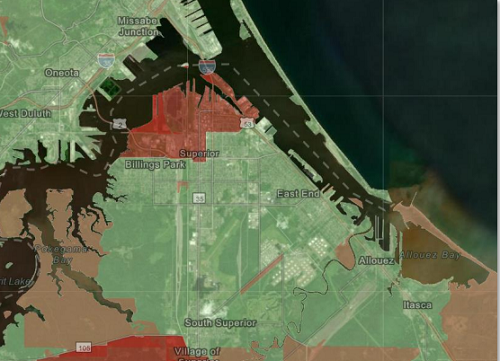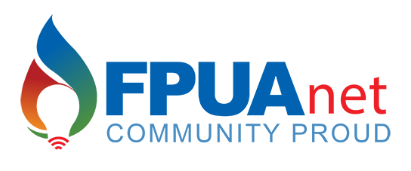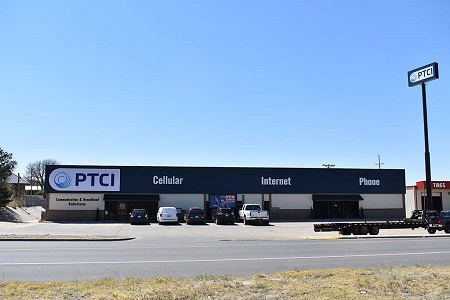
Fast, affordable Internet access for all.

Fiber to the Home
As a young woman of the Nuxalk Nation, Mallory Hans is “clearing a path for future generations.”
A 2022 graduate of the British Columbia Institute of Technology, she’s one of about 50 people hailing from various Tribes and First Nations across North America in attendance for the latest Tribal Broadband Bootcamp, a three-day intensive learning experience focused on building and running Tribal Internet networks.
Held in different tribal regions several times a year since the initiative began in 2021, this bootcamp (the eighth in an ongoing series of hands-on seminars) is being hosted at the Akwesasne Mohawk Casino Resort on the Saint Regis Mohawk reservation along the New York/Canada border.
“So far so good,” Mallory said on Day Two of the bootcamp just as the attendees broke into small groups to go through a variety of demonstration stations set up by bootcamp instructors and Tribal employees who run Mohawk Networks, which provides fiber-to-the-home (FTTH) Internet, video, and voice services across the reservation in northern New York.

In continuing the driving impulse to demystify technologies and build capacity among cohorts in Tribal nations, Day Two was centered around fiber stations that included demonstrations of how network operation centers are run; one on fiber splicing; another showcasing equipment used to install fiber inside of households with representatives from Calix, and another station on the electronic equipment that measures the performance of fiber lines.
“I’m enjoying it, feeling more confident and finding out I’m capable,” said the 22 year-old, newly minted fiber technician.
Edison, New Jersey is proceeding with the construction of an affordable, gigabit-capable fiber network after receiving $2 million cash infusion from state leaders. The resulting network will be built on the back of decades’ worth of local frustration with the high prices, spotty availability, and slow broadband speeds provided by regional monopolies.
The city spent $36,750 on a feasibility study in 2022 to determine the plausibility of building a citywide fiber network. The resulting study by Matrix Design Group found that 87 percent of Edison locals would likely switch to a city-owned and operated fiber network if the option existed.
Edison’s network is in the early stages of planning, and city leaders are only just starting to field competing bids from consulting vendors who’ll then draft a more comprehensive business plan.

In the interim, the city has received $2 million as part of the New Jersey fiscal year 2024 budget to help get the proposal off the ground.
"Access to the Internet is no longer a luxury, it’s a necessity,” State Senator Patrick Diegnan, Assemblyman Robert Karabinchak and Assemblyman Sterley Stanley said of the funding. “We commend Mayor Sam Joshi for making high-speed municipal broadband a priority for Edison."
In a post last year made to social media, Joshi detailed the city’s longstanding frustration with regional telecom monopoly Optimum, owned by French telecom giant Altice.
Superior, Wisconsin officials have given the green light to the first pilot area for Superior’s new city-owned fiber network. Dubbed Connect Superior, the open access fiber network aims to deliver affordable gigabit access to every resident, community anchor institution and business in the city of nearly 27,000.
On July 5, the Superior City Council voted 8-1 to approve deployment in the project’s first pilot area: a swath of around 821 homes and businesses lodged between Tower Avenue, Belknap Street, and North 21st streets. The vote lets the city now begin issuing RFPs for network construction and negotiate with potential network tenants.
In 2020 the city passed a resolution declaring fiber essential infrastructure. In 2021, the city council voted overwhelmingly to move forward on a deployment master plan developed for the city by EntryPoint Networks. The initial $2.26 million cost of the pilot will be paid for with the help of $5 million from the city’s $17 million allocation from the American Rescue Plan Act funding.

A citywide deployment, should the city pursue it, is expected to cost somewhere around $31 million. The city remains hopeful that much of the cost can be offset by what it hopes will be a 40 percent take rate among local residents and businesses.
Bountiful, Utah officials and community broadband advocates are breathing a sigh of relief as the Utah Taxpayers Association’s “Gather Utah” petition to stop the city from building an open-access network in partnership with UTOPIA Fiber fell short.

This past Friday was the deadline for “Gather Utah” to collect enough signatures for a petition that would have forced a citywide vote on the $48 million in revenue bonds authorized in May by city councilors to fund network construction.
In a press statement, City Manager Gary Hill said: “hired signature gatherers ultimately failed to collect enough signatures from registered voters to advance the opposition campaign.”
Bountiful Mayor Kendalyn Harris added:
“Bountiful is a unique city. Our residents started this process. They organized a ‘Fiber for Bountiful’ campaign that led to a thorough consideration of many options. We now look forward to offering a vital service to residents and businesses in an increasingly digital world.”
Now, after three years of study and more than two dozen public meetings, Bountiful Fiber will begin construction next month. As we previously reported, the city-owned fiber optic network will provide gigabit speeds to residents and businesses who subscribe for service.
Earlier this month American Association for Public Broadband (AAPB) President Gigi Sohn wrote an op-ed in the Salt Lake Tribune about how the “Gather Utah” campaign (backed by the cable industry) tried to derail the city’s project. After news of the petition failure, Sohn said:
Fort Piece, Florida officials say the city continues to make steady progress with its plan to expand access to affordable fiber to all 45,000 Fort Pierce residents with the help of the city-owned utility. The network, inspired by similar utility-backed efforts in cities like Chattanooga, promises to deliver multi-gigabit speeds at prices notably lower than regional monopolies.
Since 1972, the Fort Pierce Utilities Authority (FPUA) has provided gas, electric, water, and natural gas services to city residents. Since the early 2000s, FPUA has deployed 110 miles of optical fiber via its FPUAnet Communications division. In 2018, the city, frustrated by limited broadband competition, decided to expand network access to the public.
“Our network is moving along well,” Jason Mittler, FPUAnet manager told ILSR. “We have passed about 1000 parcels and will pass another 1000 next year.”
The full deployment is expected to take somewhere between five to ten years to finish, and is funded by bonds held by FPUAnet. The network is utilizing GPON fiber technology capable of 2.5 Gigabits per second (Gbps) downstream and 1.25 Gbps upstream in some areas, and XGS-PON-based fiber capable of symmetrical 10 Gbps speeds in others.

Mittler notes that the finished product should result in both last-mile speeds and pricing that regional telecom monopolies, predominantly AT&T and Comcast, are both unable and unwilling to offer. Especially on the upstream side of the equation.
Mittler says the plan remains to provide all locals with access to symmetrical 100 Mbps for $49 a month; symmetrical 200 Mbps for $69 a month; symmetrical 200 Mbps service for $69 a month, symmetrical 500 Mbps for $79 per month; and symmetrical gigabit for $99 a month.
The city of Dublin, Ohio has struck a public private partnership with altafiber (formerly known as Cincinnati Bell) to build a new citywide fiber network city leaders hope will finally deliver the kind of affordable, next-generation broadband access Dublin’s 50,000 residents have long been clamoring for.
In 2022 the city issued a request for proposal (RFP) looking for a partner on a citywide network build. At a June 26 meeting, the Dublin city council voted unanimously to select altafiber from a roster of seven potential applicants.
According to the arrangement, construction of the city network is expected to begin in Spring of 2024, with every premise in Dublin passed by a 10 gigabit per second (Gbps) capable network within three years. A select number of undetermined customers are expected to be brought online sometime in the latter part of next year, officials tell ILSR.
A city press release notes that altafiber will invest $35 million in the fiber network, as well as potentially providing the infrastructure necessary to help the city support either public Wi-Fi initiatives or a City Innovation Center. The city says it will pay about $6 million to bury the necessary fiber infrastructure citywide.
Panhandle Telephone Cooperative Inc. (PTCI) has announced the broadband provider will be dramatically expanding access to its fiber broadband services in New Mexico thanks to a new $43.4 million grant made possible by federal infrastructure legislation.
The Cooperative currently predominately offers fiber broadband, phone, and cellular wireless phone service to subscribers in Oklahoma and Texas. The $43 million cash infusion will allow the cooperative to expand access outside of its existing footprint into rural Union County, in northeast New Mexico.
As per grant rules, the network will deliver speeds of 100 Megabit per second (Mbps) downstream and 20 Mbps upstream, but the cooperative does not yet have a construction timeline or information on planned tiers and pricing.
PTCI’s existing deployments in Texas provide locals with uncapped fiber access at symmetrical speeds of 100 Mbps, 250 Mbps, and 1 Gbps for $60, $86, and $116 per month, respectively. The company stopped offering TV services in 2020, but launched its own cellular network in its existing territories starting in 2021.

The project’s $43 million grant for expansion into New Mexico was made possible courtesy of a recently announced fourth funding round for the U.S Department of Agriculture’s ReConnect Program. Last month the program announced another $714 million in grants and loans aimed at shoring up broadband access to long unserved or underserved rural Americans.
Ponca City, Oklahoma officials say they’ve completed construction of a citywide fiber broadband network both ahead of schedule and under budget.
The finished network is now providing affordable, uncapped, multi-gigabit fiber access to every local resident in the community or 24,100 residents of Northern Oklahoma city.
In 1996, Ponca City began developing a 140 mile central fiber network to help connect schools, city offices, and other key anchor institutions. The city’s infrastructure was expanded in 2005 to provide access to local businesses, and again in 2007 when the city began providing local access to a citywide Wi-Fi system at no cost to local residents.
Frustrated with substandard service from regional telecom monopolies, in 2014 city officials began seriously talking about building a citywide fiber network. By 2015, officials had begun gauging local interest and found that 85 percent of residents were frustrated with existing service, and overwhelmingly supported the city’s plan to build something better.

That same year officials began network planning and studying other projects in earnest.
“Collectively we studied more than 2 dozen successful projects and 13 failed ones to learn from those experiences,” Dave Williams, Director of Technology Services for Ponca City said at the time. “We visited other cities that have implemented broadband solutions, read countless research articles detailing the challenges and rewards of such projects, and systematically took every aspect of this project apart and looked at it to develop a plan addressing all the potential problem areas the best we possibly could.”
‘Business is Booming’
Eight years later and those efforts are now paying off for Ponca City residents.
Officials in the South Texas town of Harlingen say they’ve put their plan to deploy a municipal broadband network on hold after projected costs ballooned well beyond original estimates.
Originally, Harlingen officials had hoped to construct a $4 million fiber network to shore up broadband access to the city’s unserved and under-served populace, using a portion of the city’s $22 million share of the American Rescue Plan Act (ARPA).
But a $100,000 study conducted by Houston-based consultants Cobb Fendley and Associates suggested a more realistic price tag would be closer to $10 million, forcing city officials to reconsider their plan.
"We were hoping to get it rolling but we ran into a few hurdles along the way," City Commissioner Ford Kinsley recently told GovTech. "We're looking for some sources other than what we originally thought."
A 2019 census survey found that nearly 35 percent of Harlingen’s households (7,887 of 22,901) lacked any broadband access whatsoever, positioning the city as second worst in the state behind Pharr, Texas, which recently built a municipal fiber network to bring affordable connectivity to its city residents. Harlingen school district officials also say they found that 900 students' homes lacked Internet access as of 2020, hampering city education standards.
The majority of the rest of the city’s residents are served by one or two providers, resulting in spotty access, high prices, and sluggish speeds. As with so many U.S. markets, the Covid home education and telecommuting boom drove home the need for the kind of affordable, uniform broadband access regional monopolies long failed to deliver.
In the Salt Lake City suburb some call “the garden spot of Utah,” Bountiful, Utah officials have settled on a plan to bring Bountiful Fiber and affordable connectivity to its residents and businesses.
By unanimous vote of the city council, the issuance of $48 million in bonds was authorized on May 26 to fund construction of what will be a city-owned open access fiber network.
The city will own the network and lease it out to multiple private Internet service providers (ISPs) – a model that city manager Gary Hill described as a way to create “a competitive marketplace for Internet service providers."
In a letter to city councilors before the bond issuance was authorized, Hill wrote: "Resident requests and sentiment ... demonstrate a need for city involvement to provide adequate, competitive, reliable broadband services.”
After issuing an RFP in November of last year, the city contracted with the nation’s largest open access network – UTOPIA Fiber – to build, operate, and maintain the network. It is expected that construction will take about 2 to 3 years to complete, though some subscribers will likely be lit up for service within 18 months of the start of construction, scheduled to begin this month.
Dark Money Looks to Torpedo Project
A dark money campaign spearheaded by the Utah Taxpayers Association (UTA), however, is threatening to derail the project. The group, whose annual conference is sponsored by Comcast and CenturyLink/Lumen, is backing a “Gather Utah” initiative to obtain signatures for a petition that would stop the city from building the network.